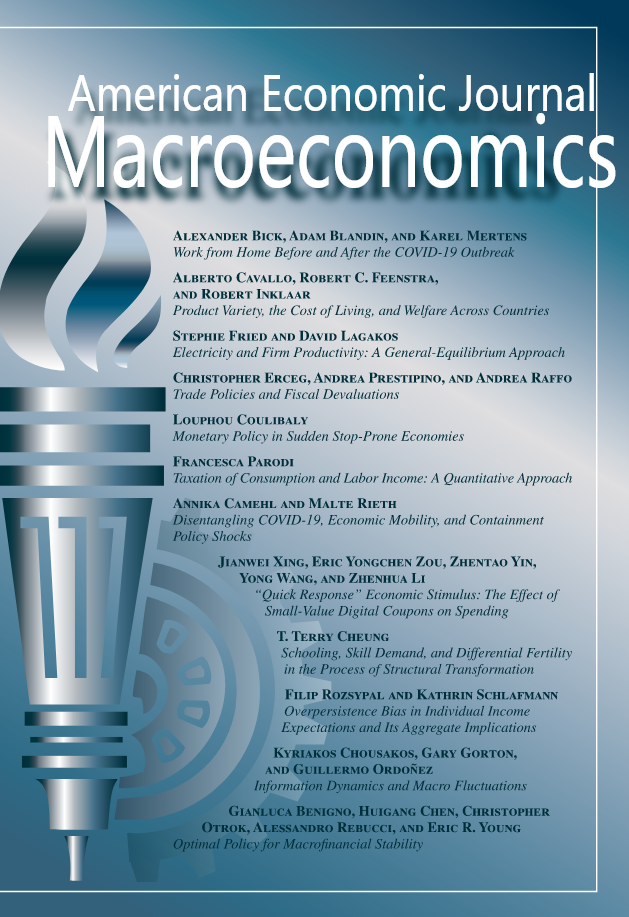缓慢的债务,严重的衰退
IF 5.7
1区 经济学
Q1 ECONOMICS
引用次数: 0
摘要
商业信贷滞后于GDP增长大约一年。这导致了经济衰退期间的高杠杆和缓慢的去杠杆化。我们表明,企业使用高风险长期债务的模型复制了企业债务的这种缓慢调整。在该模型中,缓慢移动的债务对实际经济活动有重要影响。在经济扩张期间发行的高水平企业债务只会在经济衰退期间逐渐减少。这在高违约率和低投资之间形成了一个不利的反馈循环,从而放大了经济低迷。缓慢的去杠杆化减缓了复苏。(凝胶e23, e32, e44, g31, g32)本文章由计算机程序翻译,如有差异,请以英文原文为准。
Slow Debt, Deep Recessions
Business credit lags GDP growth by about one year. This contributes to high leverage during recessions and slow deleveraging. We show that a model in which firms use risky long-term debt replicates this slow adjustment of firm debt. In the model, slow-moving debt has important effects for real activity. High levels of firm debt issued during expansions are only gradually reduced during recessions. This generates an adverse feedback loop between high default rates and low investment and thereby amplifies the downturn. Sluggish deleveraging slows down the recovery. (JEL E23, E32, E44, G31, G32)
求助全文
通过发布文献求助,成功后即可免费获取论文全文。
去求助
来源期刊

American Economic Journal-Macroeconomics
ECONOMICS-
CiteScore
8.20
自引率
1.70%
发文量
58
期刊介绍:
American Economic Journal: Macroeconomics focuses on studies of aggregate fluctuations and growth, and the role of policy in that context. Such studies often borrow from and interact with research in other fields, such as monetary theory, industrial organization, finance, labor economics, political economy, public finance, international economics, and development economics. To the extent that they make a contribution to macroeconomics, papers in these fields are also welcome.
 求助内容:
求助内容: 应助结果提醒方式:
应助结果提醒方式:


